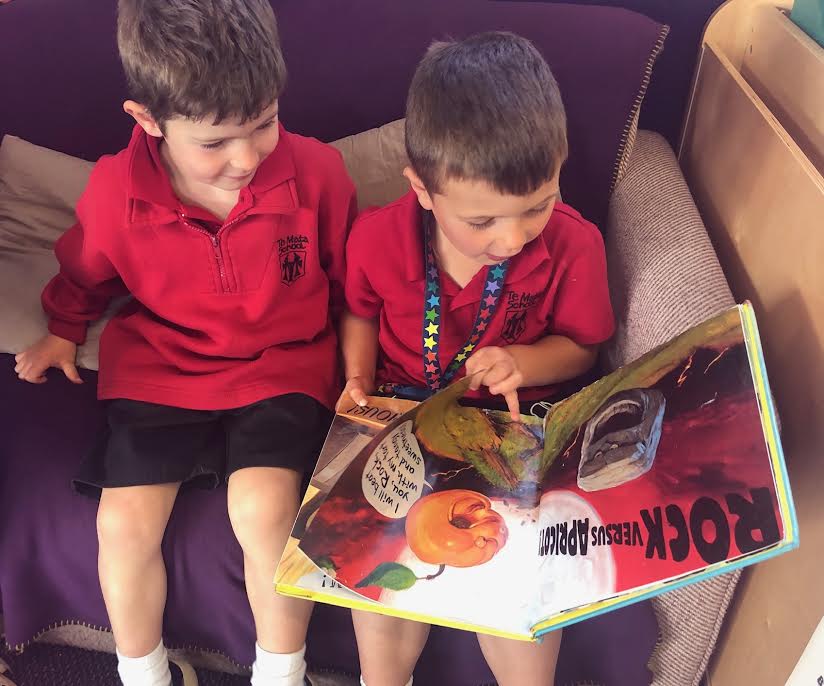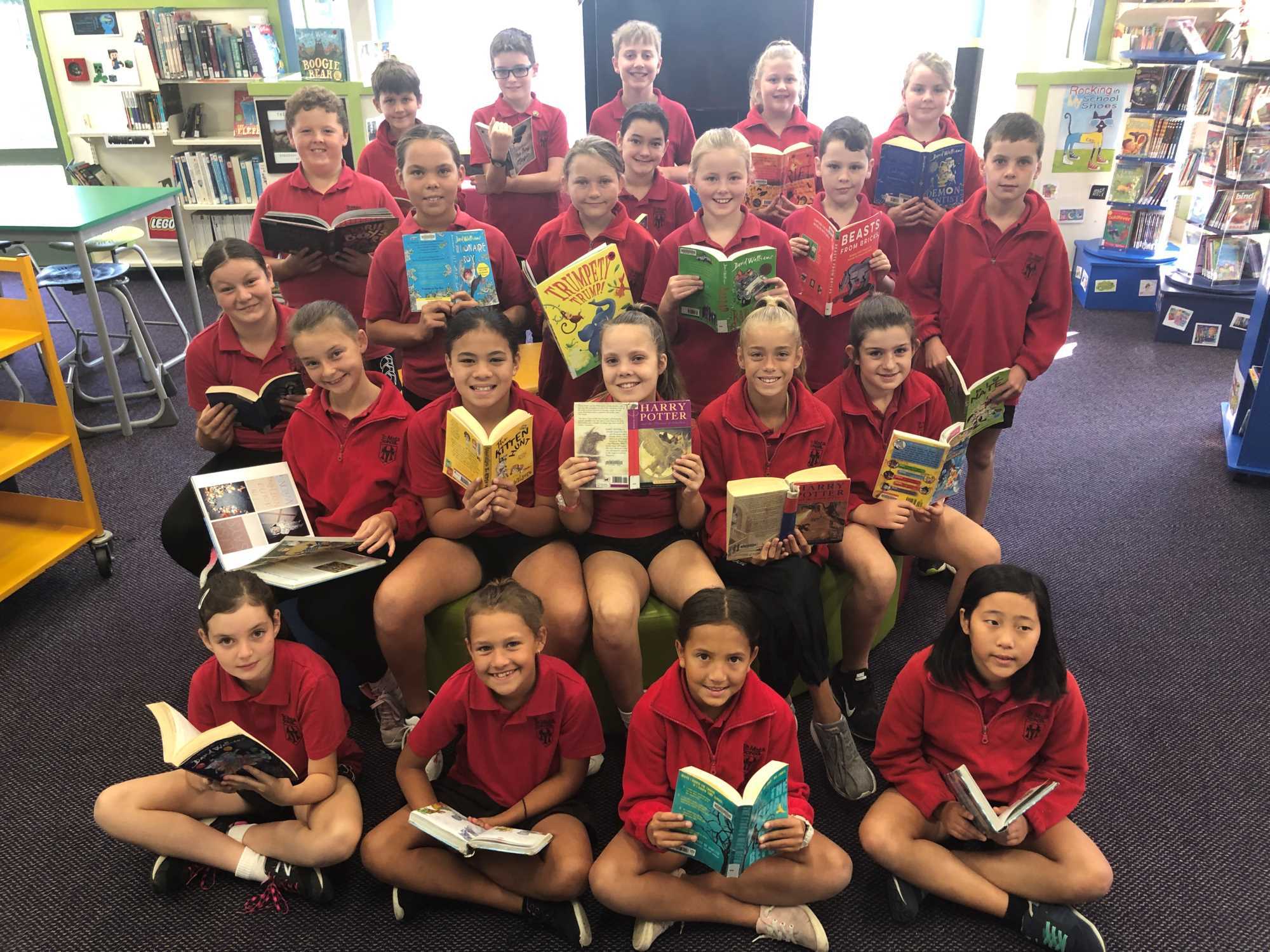

Helping children to read at home
Sunshine Books Info
Sunshine books is an online site which has 550 books for all reading abilities and ages. Children use the programme at school but can also use it at home on their home computer. (Te Mata School have subscribed for the year)
VISIT: Click Here
USERNAME: temata
PASSWORD: temata1
LEARNING TO READ in the Junior School
At Te Mata School we are committed to equipping every child with the ability to read, and to read well. We want every child to be successful and love reading!
Learning to read is a complex skill. When we learn to read we need to develop our ability to 'crack the code'. This means children need to understand the alphabet through gaining knowledge of letters and their related sounds. Once a child understands this, they are able to apply this knowledge to words by blending the sounds together.
Did you know that English has 44 speech sounds and 150 ways to read and spell them? This is what makes learning to read so complex.
WHAT DOES THIS LOOK LIKE IN THE CLASSROOM?
Fun with shared stories, poems, rhymes and alliteration
Development of alphabet knowledge; letter shapes, names and formation
Explicit teaching of blending sounds for decoding and segmenting for spelling
Multiple opportunities for children to read and spell words successfully
Children applying skills to read decodable books and write dictated sentences
DECODABLE READERS
Our early readers will be working with decodable readers. These are books that only include words that the children can decode (sound out) according to the skills they have been taught. This ensures the child is given the opportunity to practice their phonics (letter and sound) skills and be successful in their ability to read the words on the page.

HOW YOU CAN HELP AT HOME
Your child will not bring home a book every night to read however there are many ways to support your child's early reading development
Read picture books together and talk about the story
Practice reading and writing the sounds and words that your child brings home
Learning to read is a fun time for you and your child. Always remember to be their cheerleader and praise and encourage them for what they can do.

READING AT HOME: Yrs 3-6
Reading time at home should be a pleasurable and memorable time for you and your child. It can be a time for your child to show you what they can do or has been learning in class independently.
Reading is an important time to:
Share, discuss and learn about common interests
Explore imaginary worlds or events; having a fun time guessing what could happen next or what it would be like to live in that world
Learn new information about topics they have been learning about or something that has got them wondering
Have fun together instilling a love of reading
Do this by:
Reading books to your child
Visit the local library together
Talk about books that you read as a child
Enjoying regular reading times before they go to sleep at night.
Once your child has learned to read, you can help my child improve their comprehension
Helping your child to comprehend is an important skill to master.
It only needs to take 5 -10 minutes of talking with your child about what they are reading and listening to them. As you are talking you are checking that they can confidently understand the story plot, key information, and vocabulary in the text they are reading.
You can help your child by asking them to:
Retell the chapter or story they have just read in their own words; while encouraging them not to tell you the story word for word.
Talk about the characters, settings, and plot. Can they compare them to any other books they have read. What do they think about the story or style of writing?
Look at the book and find any tricky words they may have read and ask them to explain what they mean.
Ask your child to put themselves in the role of the different characters...How would you feel if...? What would it be like to live in...?
Non-fiction texts—Share your own personal knowledge about the subject, ask questions about the topic they are learning about or go online to extend their learning further.


Contact
Location
 Admin Login
Admin Login